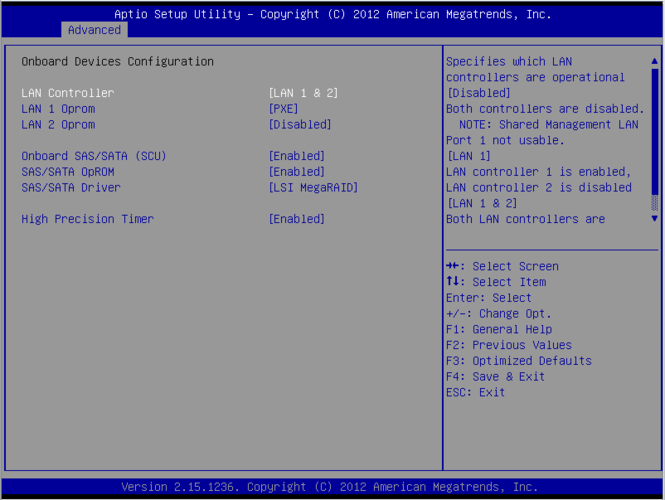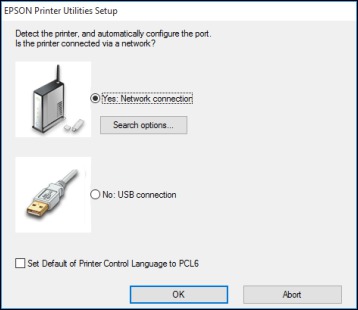- Matrix Port Devices Driver Download For Windows 10
- Driver Download Nvidia
- Matrix Port Devices Driver Download For Windows 7
- Matrix Port Devices Driver Download For Windows 8.1
The package provides the installation files for FTDI USB Serial Port Driver version 2.12.16.0. If the driver is already installed on your system, updating (overwrite-installing) may fix various issues, add new functions, or just upgrade to the available version. Click Driver in the Windows Properties section The driver must be numbered as '2.0.2.8' and dates accordingly If the driver was not installed, remove the Serial adapter then run 'PL2303DriverInstaller.exe' again. Follow directions in Device Manager to download the correct driver.
The CH340 chip is used by a number of Arduino compatible boards to provide USB connectivity, you may need to install a driver, don’t panic, it’s easier than falling off a log, and much less painful.
Windows
(Manufacturer’s Chinese Info Link)
- Download the Windows CH340 Driver
- Unzip the file
- Run the installer which you unzipped
- In the Arduino IDE when the CH340 is connected you will see a COM Port in the Tools > Serial Port menu, the COM number for your device may vary depending on your system.
Older Windows Driver Version and Instructions
Download the Windows CH340 DriverUnzip the folder.If you are running a 64Bit Windows: – run the SETUP_64.EXE installer.If you are running a 32Bit Windows: – run the SETUP_32.EXE installer.If you don’t know, try the 64 bit and if it doesn’t work, the 32 bit.In the Arduino IDE when the CH340 is connected you will see a COM Port in the Tools > Serial Port menu, the COM number for your device may vary depending on your system.
Macintosh
(Manufacturer’s Chinese Info Link)

The following github has up to day pkg files for 1.3, 1.4 and 1.5 at time of writing, thanks to Joshua Wallis for bringing this to my attention…
Direct Download Links (from the github repo above):
See the github link above for installation instructions if you need them.
Previous macinstosh downloads if the above doesn’t work for you…
(V1.3) Download the CH340 Macintosh Signed Driver for Mavericks (10.9), Yosemite (10.10) and El Capitan (10.11) and Sierra (10.12)
Inside the zip file you will find a PDF and a “pkg” file, short version, double click the pkg file, the PDF has some extra information.
OSX Sierra (10.12) Note
A kindly user, Maarten Segers reports
FYI, the driver documented here WILL crash on OSX Sierra.
I can personally not test on MacOS and can not vouch for the above drivers at github, but there you go.
See uninstalling information at the bottom of the page if the driver causes problems for you.
Here is an older version of the Mac driver, NOT FOR 10.12 Sierra
(V1.0) Download the CH340 Macintosh Signed Driver for Mavericks (10.9), Yosemite (10.10) and El Capitan (10.11)
Linux

(Manufacturer’s Chinese Info Link)
Drivers are almost certainly built into your Linux kernel already and it will probably just work as soon as you plug it in. If not you can download the Linux CH340 Driver (but I’d recommend just upgrading your Linux install so that you get the “built in” one).
Uninstalling From Macinstosh
A couple of Mac users have said “the driver crashes my mac Sierra how do I uninstall”.
Firstly regards the crash make sure you installed the 1.3 version of the driver, not the old one. You could download it directly from the Manufacturers Website in case they have issued an update since I wrote this page.
Secondly a quick google search reveals that this is how you uninstall:
- Open a terminal and type:
cd /Library/Extensions/ - Verify that the .kext file is present:
ls | grep usbserial.kext - Output should be:
usbserial.kext - Then type:
sudo rm -R usbserial.kext - Verify that the .kext file has been removed:
ls | grep usbserial.kext - Output should be empty.
- After you should remove the files stored in receipts folder:
cd /private/var/db/receipts/ - Find the enties:
ls | grep usbserial* - Output should be:
codebender.cc.ch34xinstaller.usbserial.pkg.bom codebender.cc.ch34xinstaller.usbserial.pkg.plist - Remove each one of the files of the above list:
sudo rm -rfilename`
USB Audio 2.0 Class Driver for Windows
FeaturesSupported PlatformsDemoPrices
Thesycon’s USB audio class driver TUSBAudio targets USB audio devices for professional and semi-professional use and highest quality audiophile HiFi systems. The driver supports devices which are compliant to the USB Audio 2.0 or USB Audio 1.0 device class specification. The driver provides an ASIO 2.3.1 compliant software interface and integrates with Windows as a standard WDM/DirectX compatible sound device. If the device provides MIDI features the driver exposes standard Windows MIDI ports.
To meet professional audio requirements, the audio class driver is optimized for low latency and low CPU load. Buffer depths can be adjusted by the user to optimize settings for a given computer. The driver implements a transparent (bit-perfect) playback and recording data path.
General
- supports Audio class 1.0 and Audio class 2.0 devices
- supports USB 2.0 full speed and high speed, and USB 3.0 super speed or higher
- supports standard sampling rates (depending on device capabilities):
44.1 kHz, 48 kHz, 88.2 kHz, 96 kHz, 176.4 kHz, 192 kHz, 352.8 kHz, 384 kHz, 705.6 kHz, 768 kHz, 1411.2 kHz, 1536 kHz - supports USB Audio Type I sample formats:
PCM 16 bit, PCM 24 bit, PCM 32 bit, FLOAT 32 bit - supports stereo and multi-channel configurations with as many channels as the device implements
ASIO
- ASIO 2.3.1 compliant driver DLL
- sample formats (depending on device capabilities): PCM 24 bit, PCM 32 bit
- bit-perfect playback and recording through ASIO
- playback mix (simultaneous ASIO and WDM playback)
- supports both 32-bit and 64-bit ASIO host applications
- multi-client support (multiple ASIO applications in parallel)
- configuration of ASIO buffer depth via driver control panel
- ASIO DSD mode supported (playback and recording), see below DSD Support
The TUSBAudio driver uses ASIO Driver Interface Technology and the Steinberg ASIO SDK. ASIO is a trademark and software of Steinberg Media Technologies GmbH.
WDM/DirectX Features
- standard Windows sound interfaces: MME, DirectSound, WASAPI
- stereo and multi-channel playback and recording sound devices (depending on device capabilities)
- flexible sound device configuration, for example:
8-channel unit can either be exposed as 7.1 or 4 x stereo playback - bit-perfect playback and recording through WASAPI
- volume and mute control through Windows standard GUI (depending on device capabilities)
- jack sensing (depending on device capabilities)
- PCM 16 bit, 24 bit, and 32 bit sample format (depending on device capabilities)
DSD Support
- native DSD mode through ASIO (see above)
- DSD over PCM (DoP) supported through ASIO and WDM
- DSD sample rates: DSD64 (2.8MHz), DSD128 (5.6MHz), DSD256 (11.3MHz), DSD512 (22.6MHz), DSD1024 (45.2MHz)
MIDI Features
- Windows compliant MIDI input and output ports (depending on device capabilities)
- Multiple applications can share a MIDI input port.
- Optionally, multiple applications can share a MIDI output port.
Virtual Channels Add-on
The Virtual Channels Add-on is an optional component of the TUSBAudio driver and has to be licensed additionally.
- virtual input or output channels can be defined (e.g. loopback channels)
- virtual WDM sound devices can be built from virtual channels
- arbitrary signal routing between physical and virtual channels can be configured
- routing and weights are fixed (not dynamically configurable through API)
Mixer Add-on
The Mixer Add-on is an optional component of the TUSBAudio driver and has to be licensed additionally.
- driver implements complete mixer matrix for all input and output channels
- any mixer weight can be controlled through API at runtime
- SDK included, contains sample application for mixer control
- virtual input or output channels can be defined (e.g. loopback channels)
- virtual WDM sound devices can be built from virtual channels
- application examples: monitor mix, loopback channels, channel swap, balance, etc.
- The driver will be delivered fully customized for licensee’s product.
- Customization includes USB VID/PID, file names, text strings, etc.
- Windows 10 version of the driver is signed with Microsoft Attestation signing.
- Windows 7/8 version of the driver is signed with Thesycon’s code signing certificate.
- Driver Customization Kit add-on: The Driver Customization Kit enables licensee to customize the driver by themselves.

- Wizard style user interface for interactive use
- Command line interface (silent mode) for integration into overall software setup
- Customization possible
- Control panel application with graphical user interface is included
- Device status and control via private programming interface (DLL)
- Source code of the control panel is part of the SDK.
- DFU utility with graphical user interface is included
- Firmware upgrade according to DFU device class
- Customization and Multi-language user interface is possible
- Source code of the DFU utility is part of the SDK.
NOTE: A DFU utility with identical functionality is available for macOS as well.
The SDK add-on is an optional component. It enables custom control panel development and direct access to custom firmware features. The SDK includes:
- API definition and link library for TUSBAudio API DLL
- API reference documentation
- Source Code of sample control panel implementation
- Source Code of DFU Application
Matrix Port Devices Driver Download For Windows 10
Windows 8.1
Windows 8
Windows 7
The USB Audio 2.0 Class Driver for Windows implements the USB Audio 2.0 and 1.0 device class specification and is independent of the specific silicon and firmware solution used in a given device. As long as the hardware and firmware implement the descriptors, endpoints and requests defined in the class specification the driver should work. However, there are some requirements and assumptions as listed below.
- A device can implement a playback data path, a recording data path, or both.
- Both playback and recording path must be driven by the same sample clock source (as required by ASIO).
- An Audio 2.0 device must implement at least one clock source unit. If there is more than one clock source then a clock selector unit must be implemented as well.
- The driver supports the asynchronous, synchronous and adaptive endpoint synchronization model.
- If there is a recording path (IN endpoint) then the driver uses the incoming sample stream as clock reference to generate the outgoing stream (playback path).
- A playback-only device with an asynchronous OUT endpoint must implement a feedback endpoint.
- Optionally, a device can implement a feature unit to expose volume and mute controls.
Our software is purely designed and implemented by our team in Germany - no outsourcing. Technical support is provided directly by the developers.
Current Version: 5.0
To receive a free demo, prices or license agreement, please fill out the contact form.
The free evaluation version of the TUSBAudio driver works for an interval of 60 days without any limitation. After that evaluation period has expired, the driver stops working.
Driver Download Nvidia
NOTE: The driver described on this page is *not for use by end users*. It will not help solve any problems you may experience with a consumer device such as a webcam, camcorder, card reader, external sound card, etc. Thesycon’s device drivers are software components intended to be used by hardware or software manufacturers to create end products.
For each USB device model an official USB vendor ID (VID) is required. Vendor IDs must be unique and will be assigned by the USB Implementers Forum (www.usb.org). Registration fees will be charged.
Matrix Port Devices Driver Download For Windows 7
Thesycon owns a USB vendor ID and provides a subset of product IDs (PID) to licensees of Thesycon drivers.
Matrix Port Devices Driver Download For Windows 8.1
© 2021 THESYCON
